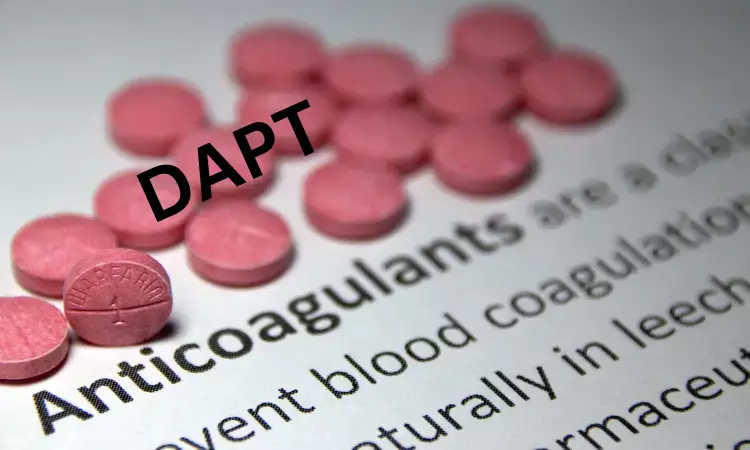- Home
- Medical news & Guidelines
- Anesthesiology
- Cardiology and CTVS
- Critical Care
- Dentistry
- Dermatology
- Diabetes and Endocrinology
- ENT
- Gastroenterology
- Medicine
- Nephrology
- Neurology
- Obstretics-Gynaecology
- Oncology
- Ophthalmology
- Orthopaedics
- Pediatrics-Neonatology
- Psychiatry
- Pulmonology
- Radiology
- Surgery
- Urology
- Laboratory Medicine
- Diet
- Nursing
- Paramedical
- Physiotherapy
- Health news
- Fact Check
- Bone Health Fact Check
- Brain Health Fact Check
- Cancer Related Fact Check
- Child Care Fact Check
- Dental and oral health fact check
- Diabetes and metabolic health fact check
- Diet and Nutrition Fact Check
- Eye and ENT Care Fact Check
- Fitness fact check
- Gut health fact check
- Heart health fact check
- Kidney health fact check
- Medical education fact check
- Men's health fact check
- Respiratory fact check
- Skin and hair care fact check
- Vaccine and Immunization fact check
- Women's health fact check
- AYUSH
- State News
- Andaman and Nicobar Islands
- Andhra Pradesh
- Arunachal Pradesh
- Assam
- Bihar
- Chandigarh
- Chattisgarh
- Dadra and Nagar Haveli
- Daman and Diu
- Delhi
- Goa
- Gujarat
- Haryana
- Himachal Pradesh
- Jammu & Kashmir
- Jharkhand
- Karnataka
- Kerala
- Ladakh
- Lakshadweep
- Madhya Pradesh
- Maharashtra
- Manipur
- Meghalaya
- Mizoram
- Nagaland
- Odisha
- Puducherry
- Punjab
- Rajasthan
- Sikkim
- Tamil Nadu
- Telangana
- Tripura
- Uttar Pradesh
- Uttrakhand
- West Bengal
- Medical Education
- Industry
No significant difference of mortality and incident MI between post PI DAPT duration of one month and 3 months

Dual antiplatelet therapy (DAPT) is the combination of aspirin and one ADP-receptor blocker (clopidogrel, prasugrel, or ticagrelor). The duration of DAPT is a matter of discussion.
A new study in Journal of American College of Cardiology states that DAPT for 1 vs. 3 months after Percutaneous coronary Intervention (PCI) was associated with a similar adjusted risk of death or Myocardial Infarction (MI) and a consistent reduction of Bleeding Academic Research Consortium (BARC) type bleeding in both oral anticoagulation (OAC) and no-OAC groups.
The researchers in the current study used XIENCE Short DAPT program, which enrolled high bleeding risk (HBR) patients who underwent successful PCI with a cobalt-chromium everolimus-eluting stent. This analysis was designed to compare the effect of 1- versus 3-month DAPT on clinical outcomes separately in patients with and without long-term OAC.
DAPT was discontinued at 1 or at 3 months in patients free from ischemic events and adherent to treatment. The effect of 1- versus 3-month DAPT was compared in patients with and without OAC using propensity score stratification. The primary endpoint was all-cause death or any myocardial infarction (MI). The key secondary endpoint was BARC 2-5 bleeding. Outcomes were assessed from 1 to 12 months after index PCI.
The key findings of the study
• Total of 3,364 event-free patients, 1,462 (43%) were on OAC. Among OAC patients, the risk of death or MI was similar between 1- and 3-month DAPT (7.4% vs. 8.8%).
• BARC 2-5 bleeding was lower with 1-month DAPT. These effects were consistent in patients with or without OAC.
Researchers added that these data suggest that 1-month DAPT followed by aspirin monotherapy might be a suitable option in high bleeding risk (HBR) patients at low ischemic risk, especially if on long-term OAC treatment to maximize bleeding protection without trade-off of ischemic events.
Additional randomized studies are indicated to assess the most appropriate timing of early DAPT discontinuation after PCI and which agent (aspirin vs. P2Y12 inhibitor) should be continued in HBR patients taking OAC.
In conclusion they stated that “Between 1 and 12 months after PCI, 1- compared with 3-month DAPT was associated with a similar rate of all-cause death or MI and a reduced rate of BARC 2-5 bleeding, irrespective of OAC treatment.”
Reference: 1- or 3-Month DAPT in Patients With HBR With or Without Oral Anticoagulant Therapy After PCI. JACC Cardiovasc Interv 2023;Oct 4.
MSc. Neuroscience
Niveditha Subramani a MSc. Neuroscience (Faculty of Medicine) graduate from University of Madras, Chennai. Ambitious in Neuro research having worked in motor diseases and neuron apoptosis is interested in more of new upcoming research and their advancement in field of medicine. She has an engrossed skill towards writing and her roles at Medical dialogue include Sr. Content writer. Her news covers new discoveries and updates in field of medicine. She can be reached at editorial@medicaldialogues.in
Dr Kamal Kant Kohli-MBBS, DTCD- a chest specialist with more than 30 years of practice and a flair for writing clinical articles, Dr Kamal Kant Kohli joined Medical Dialogues as a Chief Editor of Medical News. Besides writing articles, as an editor, he proofreads and verifies all the medical content published on Medical Dialogues including those coming from journals, studies,medical conferences,guidelines etc. Email: drkohli@medicaldialogues.in. Contact no. 011-43720751


